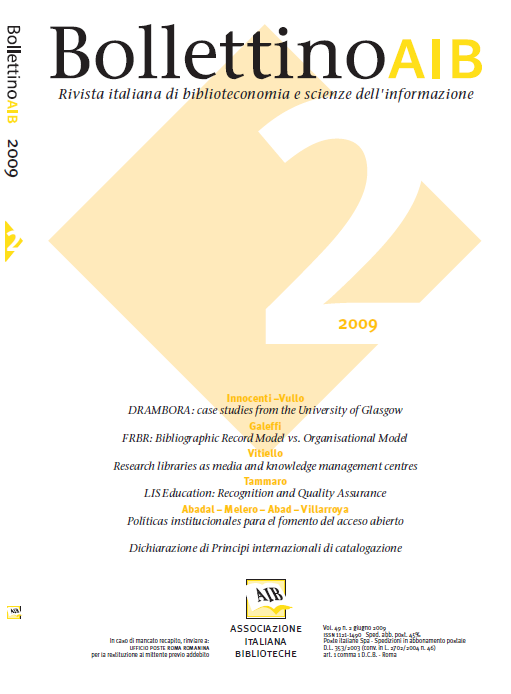Assessing the Preservation of Institutional Repositories with DRAMBORA: Case Studies from the University of Glasgow
Main Article Content
Abstract
The contemporary domain landscape suggests that information repositories are likely to play a role of considerable importance in the pursuit of digital preservation assurances. In order to legitimise decentralisation to smaller scale repository environments, it is essential that the community has appropriate mechanisms available to support repository assessment, and determine the competencies of those charged with information stewardship responsibilities. Management, staff, financiers and partners must all be satisfied that their efforts are capable of meeting formal expectations. Similarly, information creators, depositors and consumers naturally hope to obtain similar assurances of the capabilities of the organisations providing maintenance, preservation and dissemination services. Considerable work has been undertaken to develop preservation audit check-lists, intended to represent the objective benchmarks against which repositories' efforts are judged. The two primary examples, both released in 2007, are:
The Trustworthy Repositories Audit and Certification (TRAC) Criteria and Checklist describes approximately ninety characteristics that repositories that aspire to a certifiable, trustworthy status must demonstrate they have; The nestor Catalogue of Criteria for Trusted Digital Repositories reflects the regional needs of the nestor community. Structured similarly to the TRAC document, this provides examples and perspectives that are more representative of a German operational, legal and economic context.
The Trustworthy Repositories Audit and Certification (TRAC) Criteria and Checklist describes approximately ninety characteristics that repositories that aspire to a certifiable, trustworthy status must demonstrate they have; The nestor Catalogue of Criteria for Trusted Digital Repositories reflects the regional needs of the nestor community. Structured similarly to the TRAC document, this provides examples and perspectives that are more representative of a German operational, legal and economic context.
Article Details
Section
Articles

This work is licensed under a Creative Commons Attribution-ShareAlike 4.0 International License.
